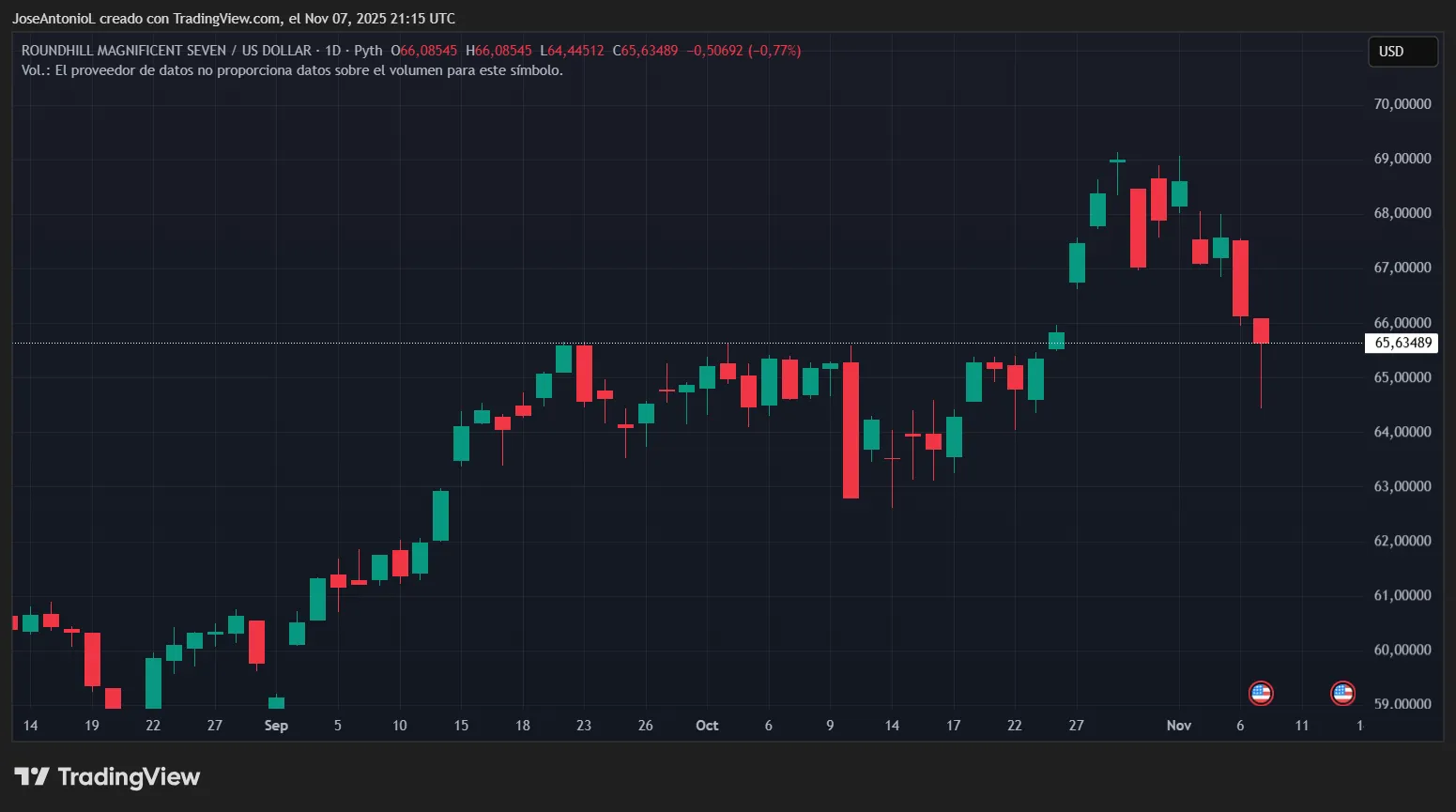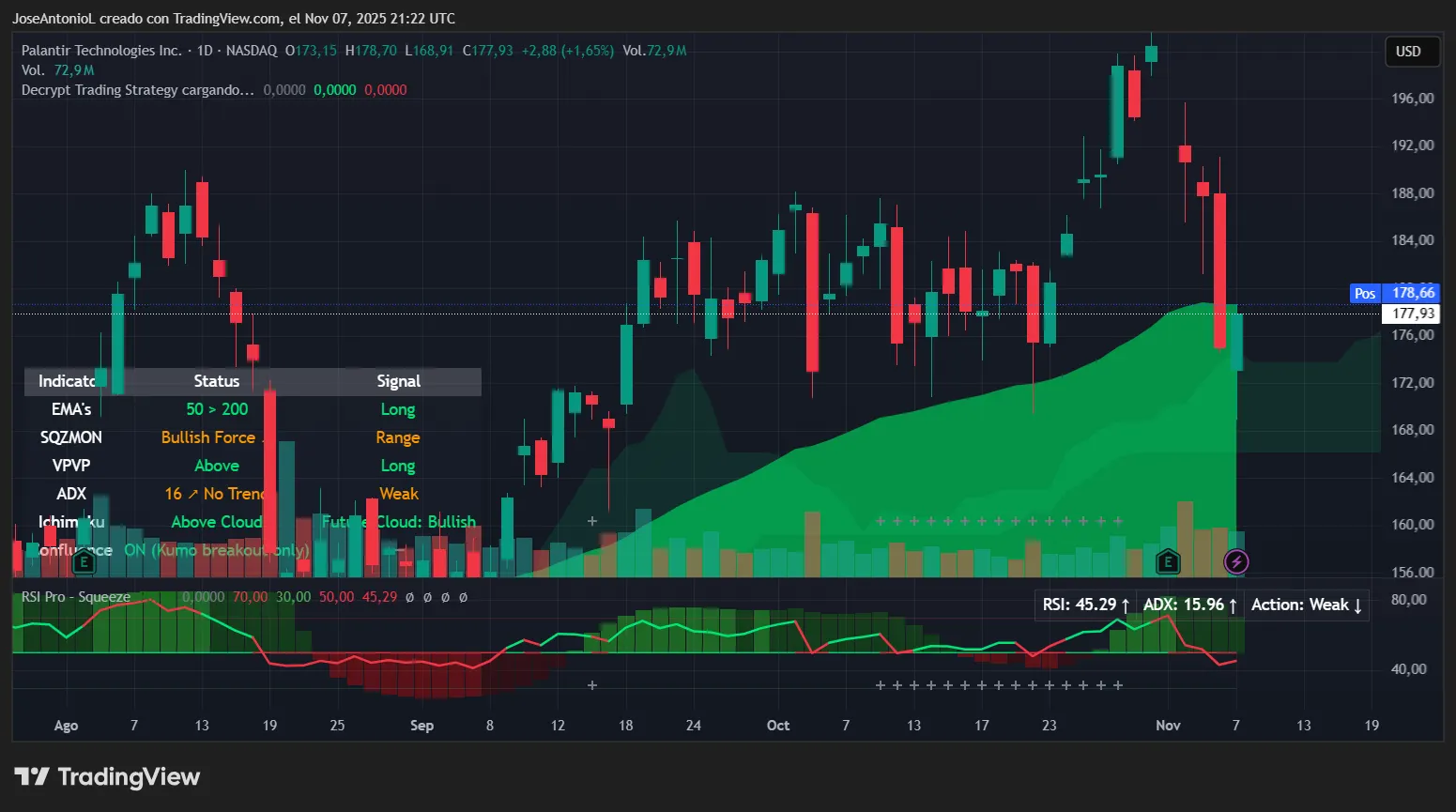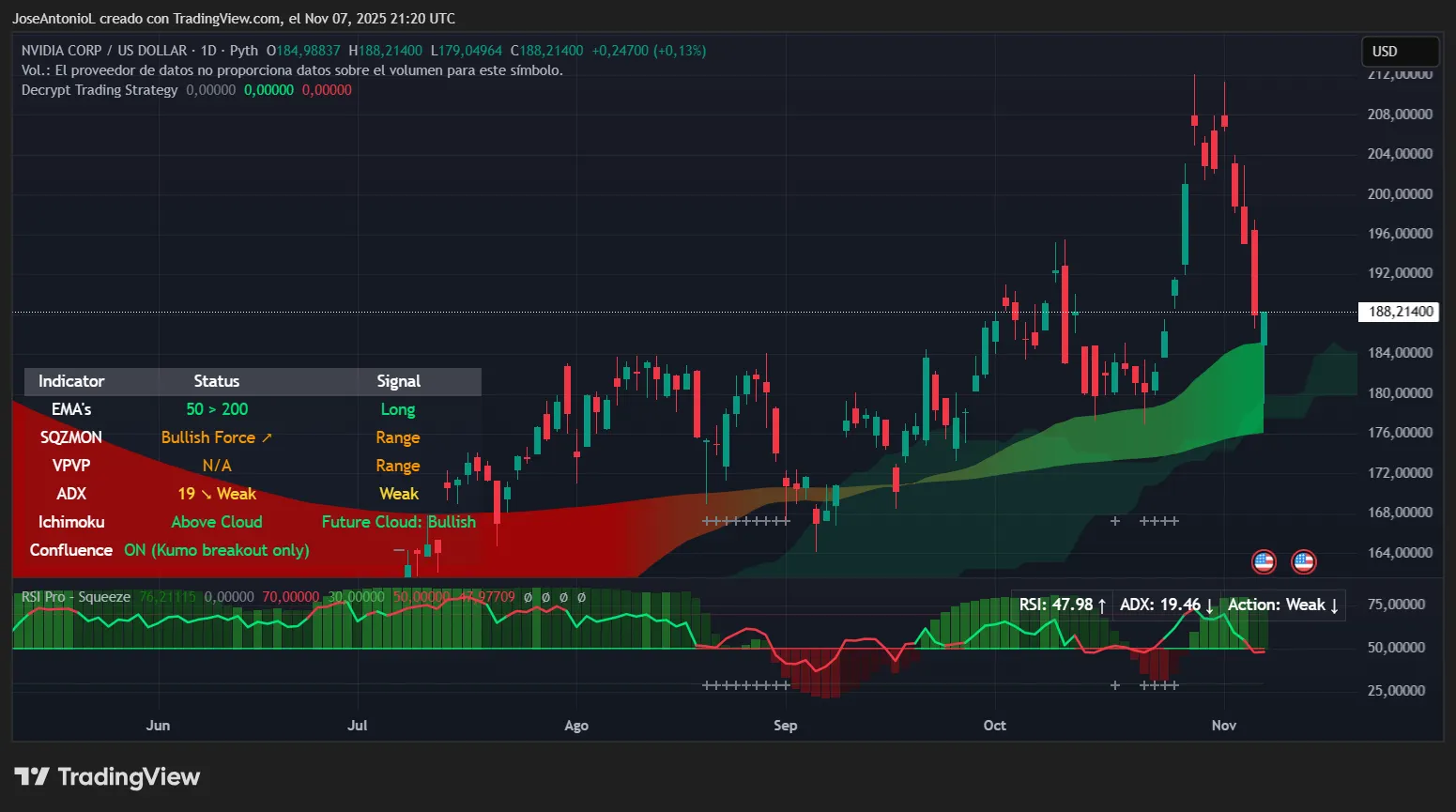In short
- Michael Burry bets $1.1 billion against Nvidia and Palantir and warns AI stocks are in bubble territory.
- His fund owns huge put options, representing 80% of Scion’s portfolio as of September 30.
- Palantir’s CEO fired back, calling the short film “crazy” and rejecting Burry’s logic.
Michael Burry, the investor (of “The Big Short” fame) who correctly predicted the 2008 housing crisis, announced a $1.1 billion short position against Nvidia and Palantir Technologies via put options on Monday, sparking an immediate sell-off in tech markets this week.
Palantir fell as much as 16% on Tuesday before closing down about 8%. The decline came despite the company beating third-quarter profit expectations and raising full-year expectations. Nvidia fell between 2% and 4% during the same trading session, while the Nasdaq Composite posted its biggest single-day percentage decline in almost a month, down about 2%. All members of the AI-related stocks of the “Magnificent Seven” closed lower that day.

The backlash spread beyond American borders. Asian and European markets recorded sharp declines in the following days, with indices in Japan and South Korea falling significantly, as concerns about technology valuations became a global sentiment driver.
Palantir’s recovery has been slow compared to Nvidia’s. The data analytics company trades at a price-to-earnings ratio of about 254 and a price-to-sales ratio of about 115, making it particularly vulnerable to continued bearish pressure.
Prices are currently trading below the average of the past 50 days, which is a warning sign for those who rely on technical analysis.

Nvidia, which has about 80% of the AI chip market, had a more modest and controlled sell-off. The semiconductor giant’s shares were able to gain better ground today
Unlike Palantir, the stock never fell below its 50-day benchmark, which is a point for analysts who see the current situation as the result of superior fundamentals and technological dominance.

While it appears the initial fears are dissipating, neither stock has returned to their previous all-time highs. Burry’s revelation sparked new volatility in the AI sector, making investors more cautious about buying at extreme valuations.
Broader consequences
The short position coincided with warnings from major managers on Wall Street. CEOs of Morgan Stanley and Goldman Sachs publicly warned investors to prepare for possible market corrections of 10% to 20% in stock markets in the coming years. Deutsche Bank has reportedly started exploring strategies to hedge its exposure to AI-driven data center investments.
Burry highlighted the issue of ‘circular finance’ in social media posts, pointing to arrangements where major tech companies invest in or lend to partners such as OpenAI, Oracle and CoreWeave, who then commit to buying chips and services mainly from Nvidia. Analysts at Seaport Global Securities describe these deals as “emblematic of bubble-like behavior” and question whether the reported growth represents true organic demand.
Palantir CEO Alex Karp reacted aggressively to Burry’s stance, calling it “crazy.” Karp said the short would motivate his company to produce better numbers “to make them poorer.”
Essentially, investors aren’t simply ignoring Burry’s warning. They treated his short as a valuable piece of information – one that, combined with warnings from the CEO and technical valuation extremes, justified a near-term risk reduction in the most speculative parts of the AI rally.
Generally intelligent Newsletter
A weekly AI journey narrated by Gen, a generative AI model.


